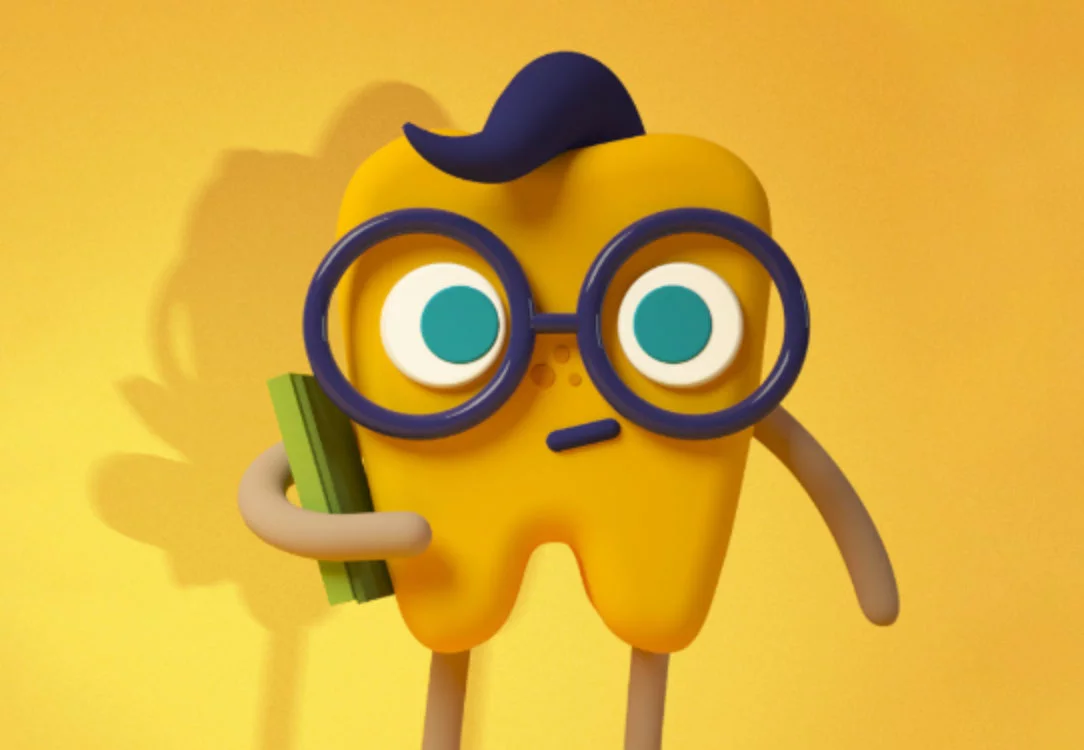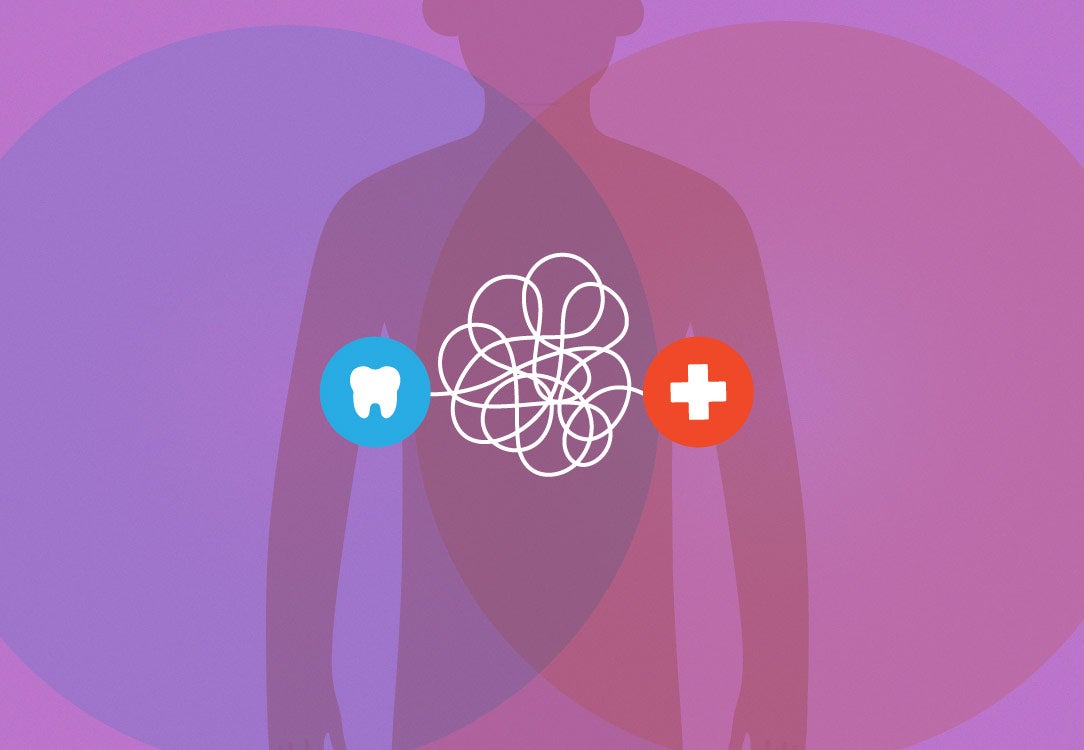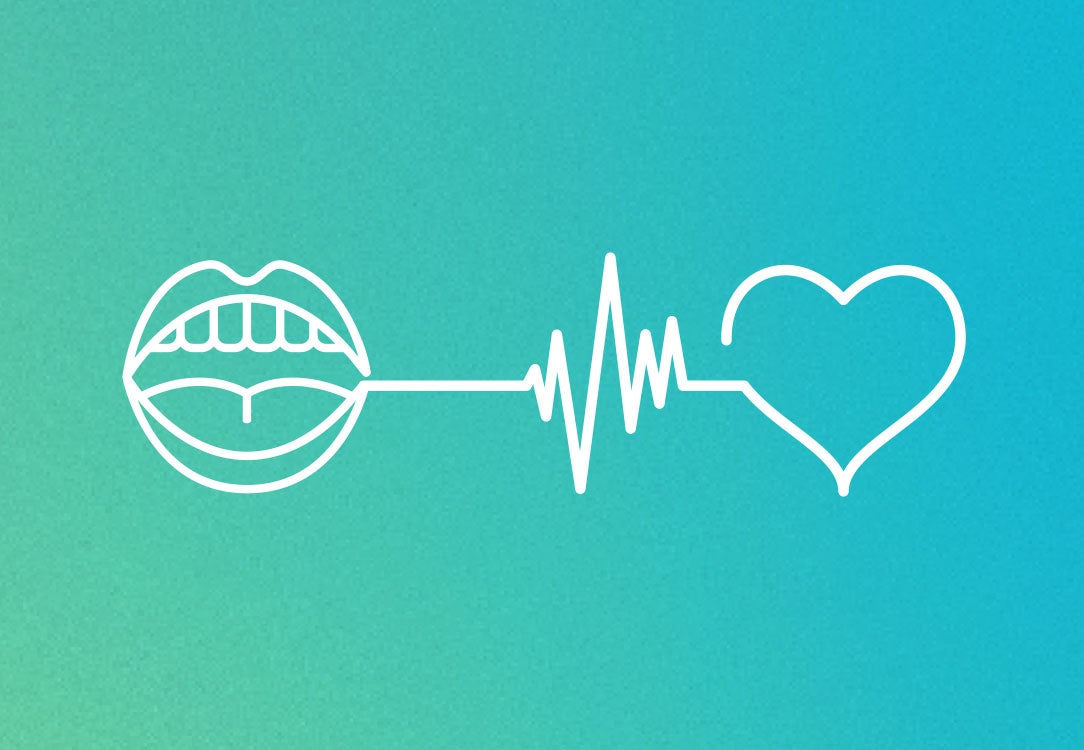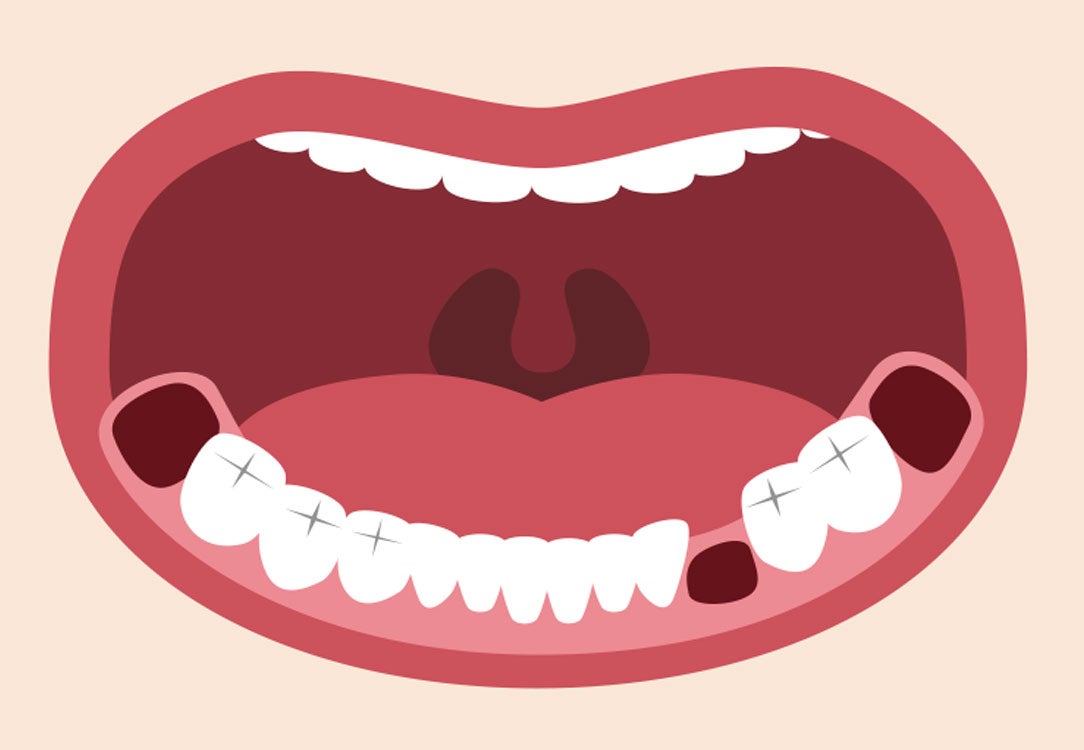You know that you should brush your teeth every day, preferably twice a day or more. You know you should floss, swish with a fluoride mouthwash, and schedule regular dental exams. You do this to keep your mouth healthy and prevent cavities and other oral health problems, like gum disease and tooth loss.
How Oral Health Affects Your Brain
We already know that the condition of your oral health has a connection to many other systemic conditions throughout the body, like heart disease, inflammation, and diabetes. However, a growing body of evidence supports the connection between your mouth health and your brain health. For example, poor oral health leads to gum disease, which indicates an increased risk for strokes, dementia, and Alzheimer's disease.[i]
- Nutritional deficiencies because of difficulties chewing some foods detract from the function
- Heightened inflammation levels raise the chances of developing plaques in the brain that cause dementia
- Socioeconomic or education factors, highlighted by a lack of denture use, which are high-risk factors for dementia
- Worsening brain impairment prevents regular oral care, which leads to worsening symptoms of poor oral health and more tooth loss
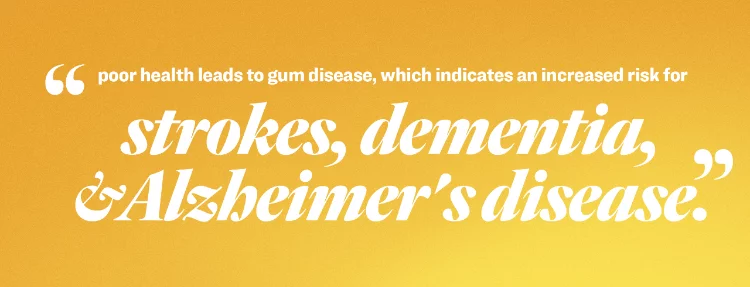
Tooth Loss Decreases Cognitive Ability
So, what causes a decrease in cognitive ability? The critical connection is inflammation. Having cavities or gum disease that causes tooth loss can lead to inflammation that travels through similar pathways that lead to the brain. That inflammation can increase the risk of strokes or other brain diseases. It can also influence how the brain works. Thus, the thinking we do every day, like remembering, learning, and problem-solving, is not what it used to be. [i]
Does Losing Teeth Affect Your Ability to Learn?
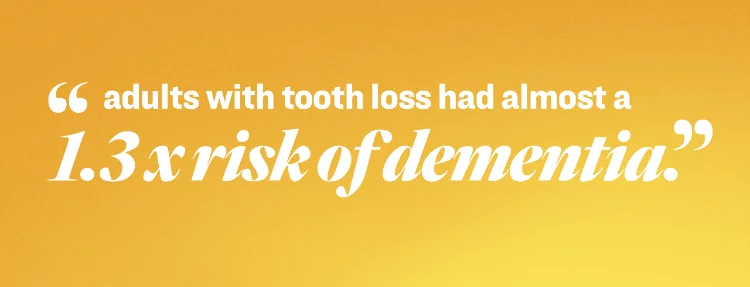
Memory
Once again, the culprit here is inflammation. The lead researcher says that when people lose teeth, they may release inflammatory substances into their system that makes it to the brain. As the brain inflammation increases, the neurons die, and memory loss increases. Like many of the associations between oral health and brain health, this relationship between tooth loss and memory loss is cyclical. [ii]
Brain Diseases
How to Reduce Tooth Loss
- Brushing your teeth for two minutes with fluoride toothpaste twice a day
- Flossing once a day
- Eating less sugar and more fruits and vegetables
- Quitting smoking or chewing tobacco—or never starting
- Drinking water with fluoride
- Seeing your dental team at least twice a year
Talk to Your Dentist
If you are talking with your dental team about your child, ask if sealants are in order. Dental sealants have been excellent for preventing cavities for many years. Children who do not have sealants have three times more first molar cavities than children with sealants.[v] To find out more about dental sealants and how they can protect your children's teeth check out our Dental sealants page.
Smile Generation-trusted dental professionals can help you protect your teeth and your brain or provide your child with better oral health to help them succeed in school. Use our Smile Generation Find a Dentist tool to find a trusted dentist near you.
Find your trusted, local dentist today!
Sources
[i] Christensen T. How oral health may affect your heart, brain and risk of death. www.heart.org. https://www.heart.org/en/news/2021/03/19/how-oral-health-may-affect-your-heart-brain-and-risk-of-death. Published 2021. Accessed April 29, 2022.
[ii] Tooth loss in older adults linked to higher risk of dementia. nia.nih.gov. https://www.nia.nih.gov/news/tooth-loss-older-adults-linked-higher-risk-dementia. Published 2021. Accessed April 29, 2022.
[i] Cherney K. Fear of the Dentist: How to Cope with Dentophobia. Healthline.com. https://www.healthline.com/health/mental-health/fear-of-dentist. Published 2020. Accessed April 25, 2022.
[ii] Holt, K. Barzel, R. 2013. Oral Health and Learning: When Children’s Oral Health Suffers, So Does Their Ability to Learn. (3rd Ed.)Washington D.C., National Maternal and Child Oral Health.
[iii] Jackson SL, Vann WF Jr, Kotch JB, Pahel BT, Lee JY. Impact of poor oral health on children's school attendance and performance. Am J Public Health. 2011;101(10):1900-1906. doi:10.2105/AJPH.2010.200915
[i] Preidt R. Tooth Loss May Be Linked to Memory Loss. consumer.healthday.com. https://consumer.healthday.com/senior-citizen-information-31/misc-aging-news-10/tooth-loss-may-be-linked-to-memory-loss-648432.html. Published 2011. Accessed April 29, 2022.
[ii] Preidt R. Tooth Loss May Be Linked to Memory Loss. consumer.healthday.com. https://consumer.healthday.com/senior-citizen-information-31/misc-aging-news-10/tooth-loss-may-be-linked-to-memory-loss-648432.html. Published 2011. Accessed April 29, 2022.
[iii] Cherney K. Fear of the Dentist: How to Cope with Dentophobia. Healthline.com. https://www.healthline.com/health/mental-health/fear-of-dentist. Published 2020. Accessed April 25, 2022.
Smile Generation blog articles are reviewed by a licensed dental professional before publishing. However, we present this information for educational purposes only with the intent to promote readers’ understanding of oral health and oral healthcare treatment options and technology. We do not intend for our blog content to substitute for professional dental care and clinical advice, diagnosis, or treatment planning provided by a licensed dental professional. Smile Generation always recommends seeking the advice of a dentist, physician, or other licensed healthcare professional for a dental or medical condition or treatment.


